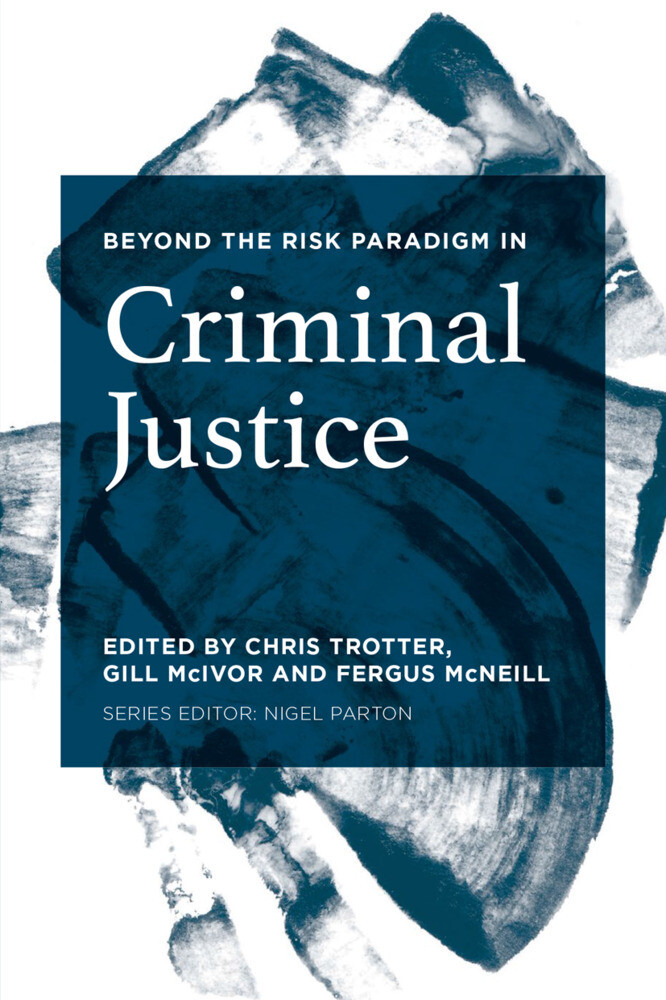
Zustellung: Mi, 30.07. - Di, 05.08.
Versand in 3-4 Wochen
VersandkostenfreiThe risk assessment process, the interventions and treatment commenced as a result of it and the theory behind it are central to the administration of criminal justice programmes around the world. Most youth and adult corrections departments routinely conduct risk assessments, which are then used to inform the nature and intensity of subsequent criminal justice interventions.
In this unique and important text, a team of the world's leading researchers in the field of criminal justice come together to provide a critique of this risk paradigm, and to provide practical guidance for professionals, students and academics on how to move to a more effective way of working with offenders.
Divided into three sections, the book provides coverage of topics such as:
The development of risk assessment in criminal justice practice, and its advantages and disadvantages
The significance of risk factor research in understanding and explaining juvenile delinquency as well as the problems it creates
The argument that the risk paradigm fails to accommodate diversity, further disadvantaging women, ethnic minorities and other marginalized groups
The various ways in which real or imagined risk posed by offenders has been regulated under the risk paradigm, the powerful influence of media reporting,, and ways of moving 'beyond risk' to support successful reintegration of offenders
Ways forward for criminal justice interventions that do not rely on risk, but focus rather on the vitally important aspects of social context, relationships and motivation.
With strong links between theory and practice, Beyond the Risk Paradigm in Criminal Justice provides a fresh new direction for criminal justice work.
In this unique and important text, a team of the world's leading researchers in the field of criminal justice come together to provide a critique of this risk paradigm, and to provide practical guidance for professionals, students and academics on how to move to a more effective way of working with offenders.
Divided into three sections, the book provides coverage of topics such as:
The development of risk assessment in criminal justice practice, and its advantages and disadvantages
The significance of risk factor research in understanding and explaining juvenile delinquency as well as the problems it creates
The argument that the risk paradigm fails to accommodate diversity, further disadvantaging women, ethnic minorities and other marginalized groups
The various ways in which real or imagined risk posed by offenders has been regulated under the risk paradigm, the powerful influence of media reporting,, and ways of moving 'beyond risk' to support successful reintegration of offenders
Ways forward for criminal justice interventions that do not rely on risk, but focus rather on the vitally important aspects of social context, relationships and motivation.
With strong links between theory and practice, Beyond the Risk Paradigm in Criminal Justice provides a fresh new direction for criminal justice work.
Inhaltsverzeichnis
PART I: THE RISK PARADIGM IN PRACTICE.- 1. The Rise of the Risk Paradigm in Criminal Justice; Gwen Robinson.- 2. Three Narratives of Risk: Corrections, Critique and Context; Peter Raynor.- PART II: THE CONSEQUENCES OF THE RISK PARADIGM.- 3. Risk Assessment in Practice; Chris Trotter.- 4. Taking the Risk out of Youth Culture; Stephen Case and Kevin Haines.- 5. Justice, Risk and Diversity; Gill McIvor.- 6. Drugs, Mental Disorder and Risk; David Rose.- 7. Programmes for Domestic Violence Perpetrators; Dave Morran.- 8. Risk, Regulation and the Reintegration of Sexual Offenders; Anne Marie McAlinden.- 9. The Collateral Consequences of Risk; Fergus McNeill.- 10. Probation, Risk and the Power of the Media; Wendy Fitzgibbon.- PART III: WAYS FORWARD.- 11. Putting Rrisk in its Place; Craig Schwalbe and Gina Vincent.- 12. Dynamic and Protective Factors in the Treatment of Offenders: a Reconceptualization; Tony Ward and Imogen McDonald.- 13. An Unfinished Alternative: Towards a Relational Paradigm; Beth and Allan Weaver.- 14. Changing Risks, Risking Change; Chris Trotter, Gill McIvor and Fergus McNeill.
Mehr aus dieser Reihe
Produktdetails
Erscheinungsdatum
09. September 2016
Sprache
englisch
Seitenanzahl
272
Reihe
Red Globe Press
Herausgegeben von
Chris Trotter, Gill McIvor, F. Mcneill
Verlag/Hersteller
Produktart
kartoniert
Gewicht
417 g
Größe (L/B/H)
235/155/14 mm
ISBN
9781137441324
Bewertungen
0 Bewertungen
Es wurden noch keine Bewertungen abgegeben. Schreiben Sie die erste Bewertung zu "Beyond the Risk Paradigm in Criminal Justice" und helfen Sie damit anderen bei der Kaufentscheidung.































